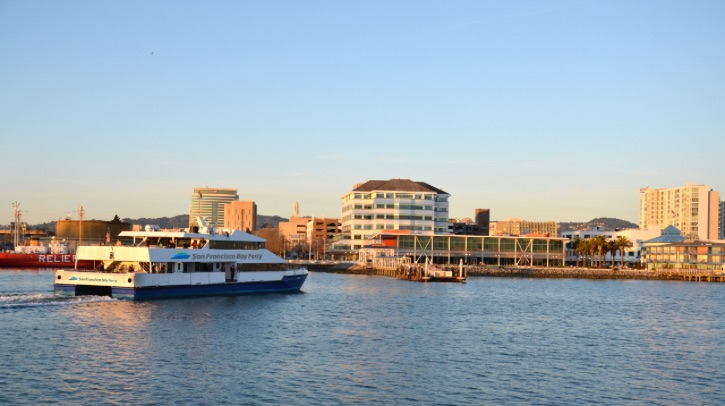The Federal Transit Administration (FTA) has awarded an US$11m grant to San Francisco Bay Ferry to support the agency’s plans to procure what it states will be the nation’s first high-speed battery-electric ferries.
High-speed battery-electric ferry
The FTA grant will support the procurement of a class of three 150-passenger battery-electric vessels serving Treasure Island, Mission Bay, Downtown San Francisco and additional emerging communities on the San Francisco waterfront.
“San Francisco’s waterfront is thriving, and this award will make sure that they are connected and accessible using state-of-the-art, zero-emission, congestion-reducing ferries,” said Jim Wunderman, chair of SF Bay Ferry’s board of directors.
“This is happening thanks to bold investments from the Biden-Harris Administration and strong support from the Bay Area Congressional delegation and ferry supporters including House Speaker Emerita Nancy Pelosi and Senator Alex Padilla.”
Rapid Electric Emission-Free Ferry program
The award advances Phase 1 of SF Bay Ferry’s Rapid Electric Emission-Free Ferry (REEF) program, a transformative suite of projects to transition the agency’s fleet to zero-emission propulsion technology.
The San Francisco Bay Area Water Emergency Transportation Authority (WETA) has now secured roughly US$136m in funding from local, state and federal agencies to implement its REEF program. This includes state and federal funding for system planning, new battery-electric vessels and shoreside infrastructure.
Future phases of the REEF Program include two new 400-passenger battery-electric vessels, the conversion of four diesel 400-passenger ferries to zero-emission technology, terminal electrification across the system and expansion and electrification of the agency’s Central Bay Operations and Maintenance Facility in Alameda.
In August 2024, SF Bay Ferry unveiled designs of the vessels that will operate on the Emerging Waterfront Neighborhoods Network. The agency expects to award procurement contracts on those ferries in the autumn of this year, with delivery of the first vessel expected in 2026.
In related news, Navier recently piloted a high-speed, zero-emission water transit service for San Francisco Bay Area commuters. Click here to read the full story.



